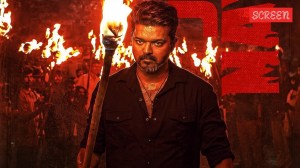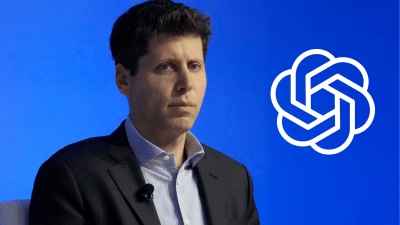Stay updated with the latest - Click here to follow us on Instagram
Memory card
David Stuart MacLean rediscovers himself after recovering from amnes.
GREGORY COWLES
David Stuart MacLean’s first book, The Answer to the Riddle Is Me, opens with a scene out of Robert Ludlum: The protagonist wakes from a blackout to find himself on a crowded train platform in India, with no idea who he is or what he’s doing in a foreign country. The protagonist is MacLean himself, and his book is a “memoir of amnesia” — the true story of how his memory was wiped clean and how that condition has subsequently affected his life.
In 2002, MacLean was a 28-year-old Fulbright scholar visiting India to research a novel. It wasn’t his first trip; he had gone a few years earlier and stayed for months. But this time round, his anti-malaria medication touched off a break with reality as sudden as it was severe. He hallucinated angels and demons, and felt his thoughts “puddling in the carpet near the doorway and sloshing down the hall”. Delirious, he agreed with the police officer who surmised he must be a drug addict, and apologised for misdeeds he had never committed. At the hospital, a nurse called him “the most entertaining psychotic that they’d ever had”.
In his descriptions, you can recognise the good fiction writer MacLean must have been even before amnesia. An avid drinker before his breakdown, he recoils the first time he tries Scotch again, thinking it smells “like Band-Aids”. He can’t remember his girlfriend of a year, but her voice is “faintly familiar, like the smell of the car heater the first time you turn it on in the fall”.
Is personality innate or shaped by experience, or both? If by experience, whom do we become when our memories of that experience are stripped away? As he recovers at his childhood home in Ohio, then returns to India, MacLean tries to fill in that outline of himself, and the effort becomes his central story. He pores through old photos, and reads the notes he jotted in books he doesn’t remember reading. “I was always trying to decipher something,” he discovers, “even before I was insane.”
Some of what he learns is disconcerting. Old friends and professors assume he has staged his amnesia as a hoax; apparently, he was known for hiding his emotions behind elaborate pranks. Meanwhile, he realises he has no strong feelings for the girlfriend who shows up to dote on him. “It seemed like I was always pulling away from women who liked me,” he says, before vowing to change. But reinventing yourself turns out to be not so easy, even with a seemingly blank slate. Gradually, he does regain his identity, although the amnesia haunts him like a hangover long afterward. He has suicidal thoughts and deals with his anxiety by smoking and drinking.
“Continuing on in the world of the sane,” he writes, “is harder than you thought.” Near the end of the book, MacLean acknowledges with amused resignation that his story “was most real to others when I talked about pop culture.” His experience was not like that of Geena Davis in The Long Kiss Goodnight, discovering a secret talent for cooking, or Guy Pearce in Memento, deciphering tattoos to solve the riddle of himself, he says, adding, “It’s not like Matt Damon in The Bourne Identity waking up in an ocean, either.”







